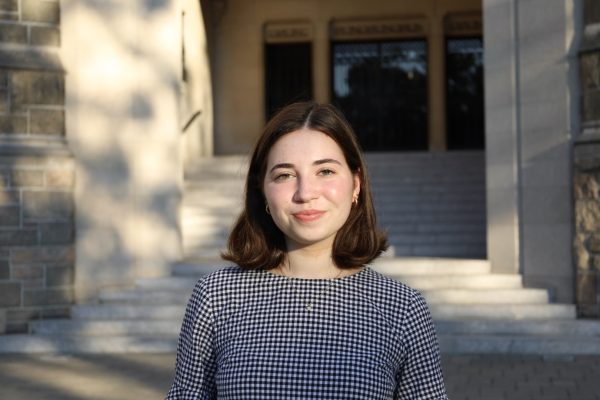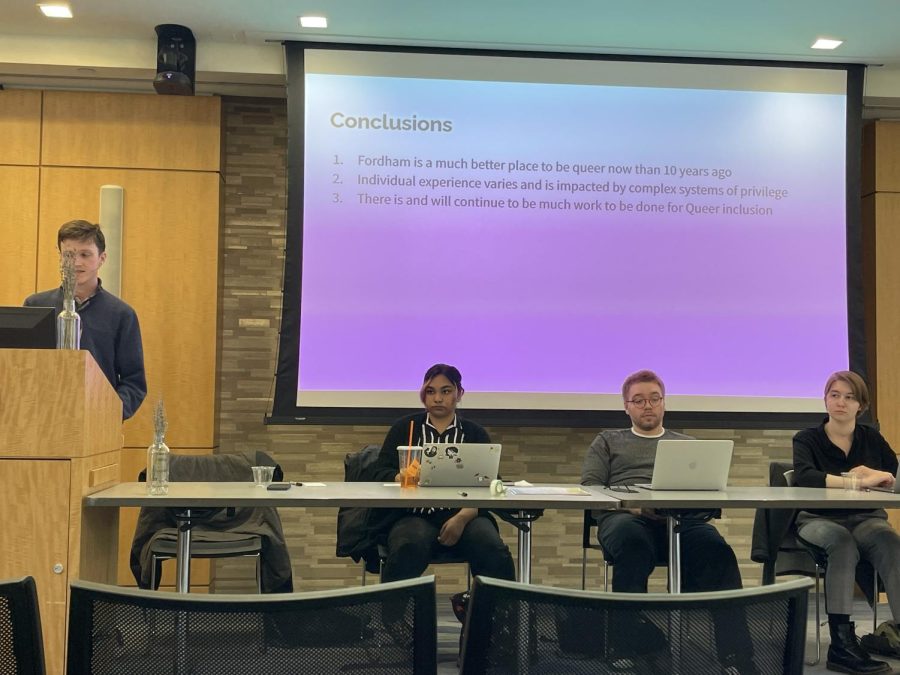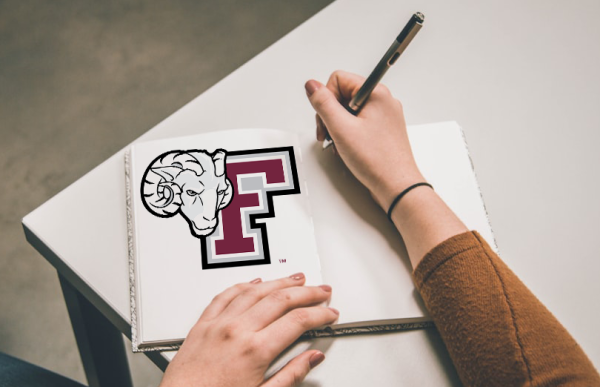Fordham Que(e)ry Presents Results from LGBTQ+ Survey
On March 30, a group of students presented the results from a survey of over 300 LGBTQ+ Fordham students. The Fordham Que(e)ry is a follow-up from the 2013 Que(e)ry survey completed by Jeff Lockhart. The Que(e)ry included a range of questions pertaining to the goal of improving the LGBTQ+ experience at Fordham and seeing how the LGBTQ+ experience has changed over the last 10 years.
The event, facilitated by Benedict Reilly, FCRH ’23, presented the preliminary findings of the survey. Four students made up the Que(e)ry team: Lilly Gieseke, FCRH ’23, Fareea Khan, FCRH ’24, Ethan Hammett, FCRH ’23, and Reilly.
The survey received 333 valid responses from Fordham undergraduate and graduate students from both campuses. Although the focus of The Que(e)ry was gender and sexual minority students, the survey was open to everyone.
The survey found that there were massive improvements to the LGBTQ+ experience at Fordham, but queer students still experience queerphobia and are also aware of past instances of queerphobia on campus.
“Even if you haven’t experienced that reality [queerphobia], perceptions of that queerphobia have a real effect on the community and we need to understand that too,” said Reilly.
The Que(e)ry findings reflected that racism is ingrained in campus culture and disproportionately impacts queer, trans and BIPOC students. 48.28% students of color report having heard homophobic or transphobic remarks.
The Que(e)ry also found that students trust student-run spaces more than those run by faculty or staff. Peer-organized spaces where LGBTQ+ students felt safe included Women’s Rugby and Rodrigue’s Coffee House. Alternatively, queer students perceive athletic spaces as unwelcoming. LGBTQ+ students have heard the use of slurs and anti-queer language while working out in RamFit and attending Fordham sporting events.
LGBTQ+ students also have difficulty living in residence halls which cater towards cisgender and heterosexual students. However, students reflected that the LGBTQ+ student experience is most positively affected by Residential Life staff such as RAs and RDs.
“I think, for a lot of people, going to college is a chance for them to fully embrace their identity. That’s why it’s important that these students find a sense of belonging at Fordham,” said Gieseke.
Therefore, the Que(e)ry team noted the necessity of providing students with on and off-campus mental health resources, curating programs geared specifically toward building community among trans and gender diverse students and generating a larger awareness of the resources available to students.
“Campus resources are a hard thing to talk about because students don’t even know what campus resources there are,” said Reilly.
Many students relayed having positive experiences as an LGBTQ+ student at Fordham. For example, many students reported faculty and staff as being the first out adult they have had a personal relationship with in their lifetime.
“Students really do value the many faculty and staff who serve as mentors to LGBTQ+ students. I see many people in this crowd who have shown up on this list,” said Reilly.
After the Que(e)ry team summarized their findings, they facilitated a panel discussion during which panelists reflected on the survey’s findings. The panelists were Joan Cavanagh, Campus Ministry, Santiago Plaza, FCRH ’23, and Tarchithaa Chandra Sekharan, FCRH ’24.
Reflecting on her own personal experience, Cavanagh shared that 25 years ago she was out to only a few select people at Fordham in fear of losing her job.
Cavanagh, who has worked in Campus Ministry for over 25 years, noted the difference between the LGBTQ+ students’ experience 25 years ago versus today.
“In the last 25 years, this cause has advanced greatly. Students wanted to form a pride alliance 25 years ago and they were turned down… I’m proud that so much funding is going towards these issues and that it [Fordham] is so much safer,” said Cavanagh.
The Que(e)ry team opened the floor for audience Q&A. Students asked questions pertaining to the survey as well as shared instances of queerphobia they’ve witnessed recently. For example, one student shared that he noticed a promotion flier for the Qu(e)ry event in Hughes Hall had been torn off the bulletin board.
Reilly said that the Que(e)ry team plans to continue having conversations with different organizations at Fordham about the results of the report. The Que(e)ry team will present their findings at the Fordham Undergraduate Research Symposium on April 19, 2023 and Ignatian Q on April 23, 2023.
“[Fordham] is a place where many people have come out… a place that is important to people’s personal growth and development, and we need to celebrate that. We need to celebrate the many ways that Fordham welcomes LGBTQ+ students,” said Reilly.

Sofia Donohue is a senior from Kensington, Md., who is majoring in English with a double minor in history and Italian. She first joined the Ram as a digital...












































































































































































































